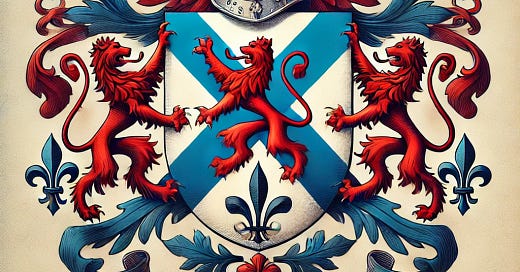Nova Scotia's Connection to Scottish Nobility
In the early 17th century, Scotland, like much of Europe, was a land in flux—politically, religiously, and socially. Among the more unusual legacies of this turbulent period was the creation of the baronets of Nova Scotia, a title that links Scottish nobility with the New World, particularly the remote and rugged province of Nova Scotia in what is now Canada. This fascinating chapter in history, initiated by King James VI and I and later carried forward by his son Charles I, was as much about colonial ambition as it was about aristocratic honor.
The Origins of the Baronetcy of Nova Scotia
The idea of creating a baronetcy tied to Nova Scotia was born out of a grand scheme by King James VI of Scotland (James I of England) to colonize parts of North America. Sir William Alexander, a Scottish poet and courtier who would later become the Earl of Stirling, was instrumental in developing this plan. In 1621, Alexander was granted a large tract of land in what is now eastern Canada, including Nova Scotia, by King James. The region, sparsely populated by Indigenous peoples, was seen as a potential site for Scottish settlement and economic expansion.
Keep reading with a 7-day free trial
Subscribe to Tales of Forgotten Scottish History to keep reading this post and get 7 days of free access to the full post archives.




